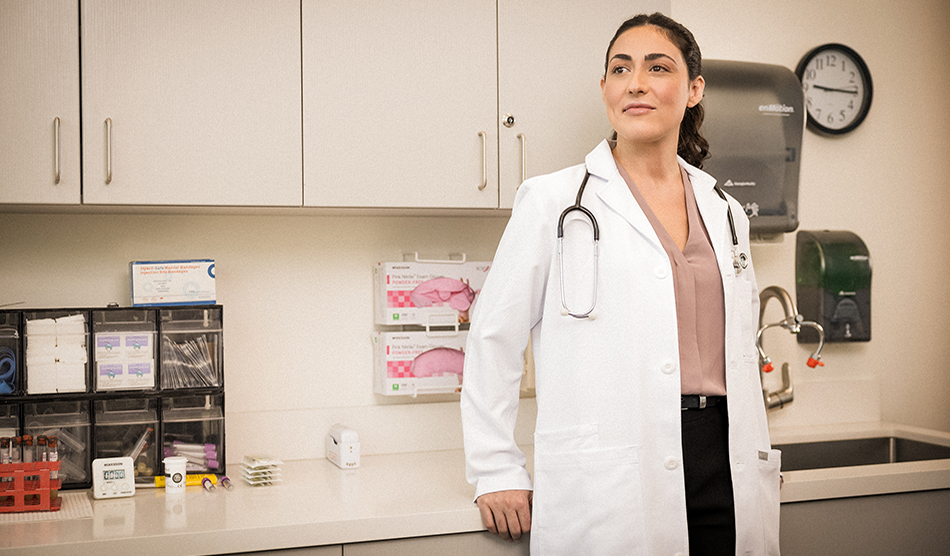Nearly half of all U.S. physicians (42%) have experienced burnout at some point in their career, according to Medscape’s 2021 National Physician Burnout & Suicide Report, and the ongoing COVID-19 pandemic has only exacerbated the problem for many of them.
How big is the problem?
Characterized by a loss of enthusiasm for work, feelings of cynicism, and a low sense of accomplishment, burnout is especially high among critical care physicians (51%) and infectious disease doctors (49%) — specialists who have been greatly impacted by the pandemic.
Further, physicians reported feeling less happy in 2020, with only 58% feeling somewhat or very happy now, compared with 82% in 2019.
If you’re exhausted by constant stress, detached from your patients, or are generally feeling cynical, it may be time to consider a change. Here are five ways working locum tenens can alleviate the most common causes of physician burnout and revitalize your career.
1. Increase your focus on patient care
Too much bureaucracy is the number one contributor to physician burnout, and OB/GYN Dr. Roseann Freundel dealt with her fair share before switching to locum tenens.
“I was tired of the politics and committees that take you away from your patients. I understand the need for administrative stuff, but I hate the politics of medicine,” she says. This frustration led her to try out her first locums assignment — and she has worked locum tenens exclusively for several years now.
Locums allows Dr. Freundel to focus on patient care, not bureaucratic tasks. “Even if you have a heavy load, you know you’re going to be with your patients,” she says. “You’re not going to be pulled out for some meeting. That’s what I went into medicine for, to be with my patients.”
2. Gain control over your schedule
Over a third of physicians say spending too much time at work contributes to their burnout, a feeling psychiatrist Dr. J. Bradley Hassell is familiar with.
“My family saw me right about bedtime and, if I was lucky, I’d see them before they went to school in the morning, but that was pretty much it. It was a lousy way to live,” he says.
After trading in his 70-hour work week for short-term locums assignments, he has been able to spend more time with his family by deciding exactly how much and when he wanted to work. “I went from having a job that was 24/7, 365, where I was always on call, even when I was on vacation,” he says. “Now I have a lot of freedom.”

3. Learn something new
Locums allows many physicians the chance to work in a new environment, try out different practice settings, and keep their skills sharp.
“Sometimes, in private practice, physicians get used to doing things the same way over and over, so acclimating to new colleagues and systems may be a challenge at first. But I find the exposure helps to keep things interesting. I also discovered some better ways of doing things,” says Dr. Steven Weissfeld, an orthopedic surgeon who works locums full-time.
Other physicians enjoy working locums in rural areas because they’re able to treat a wider variety of cases. Pathologist Dr. Robert Dowdeswell enjoys the chance to use his skills this way while also providing care in underserved areas. “Most of the people I treat don’t have access to larger facilities, specialty clinics, or research institutions, so I often manage more interesting or complex cases than I might see in larger cities,” he says.
4. Pursue outside interests
While being a doctor is an important part of many physicians’ identities, having outside interests can help you step away from work and find fulfillment in other areas of your life. Because locums lets physicians be flexible with their schedules, many physicians use that opportunity to pursue their passions.
Dr. William Barrett works full-time locums as a general surgeon, and his lifestyle leaves plenty of time for him to enjoy his hobbies. From singing to mixed martial arts to CrossFit, he’s able to incorporate all of these activities into his schedule.
He also has time to do volunteer work. “One of the reasons why I left full-time practice was because I didn’t have any time to do that and it’s something that I really enjoy,” he says. He volunteers regularly with several organizations, adding, “If they’re on a particular mission that’s something that I want to contribute quite a bit to, then I have the flexibility to do that.”
5. Reduce your overall stress
Being a physician is stressful in and of itself, but when adding on additional responsibilities, it can feel overwhelming. Locums is a way you can take control of your life and reduce your stress levels.
As a mother who’s married to another physician, OB/GYN Dr. Jenny Underwood has to do a lot of juggling in her life, but she finds taking locums assignments allows her more time relax.
“It’s hard to explain, but it’s refreshing as a mom to have a week of doing what you’re passionate about as a doctor and have the time when you’re not working to exercise and breathe for a second. I come home refreshed,” she says. “On the flip side, it’s the same: I’m home with my family for three weeks, and then I’m excited to go back on assignment. I’ve found that as a mom, locums gives me that balance.”
Rediscover your passion for medicine
For many physicians experiencing burnout, it can be difficult to feel like what you’re doing is making a difference. Switching things up by working locums — either for a weekend shift once a month or as a full-time career alternative — can help put things into perspective and remind you why you chose medicine in the first place.
Explore locum tenens opportunities in your specialty or give us a call at 954.343.3050 to speak with a consultant.



